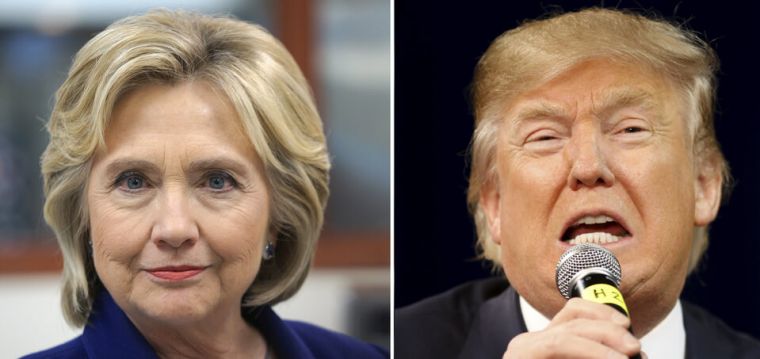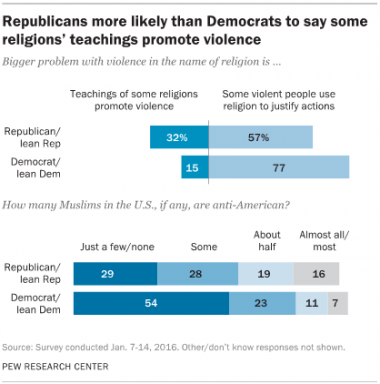Should the next US president be offensively blunt about Islamism? Republicans think so, Democrats don't

Should the next US president be blunt about Islamist terror even if it means offending Muslims as a whole? Nearly half of Americans think so, while half want him or her to be more careful – but there's a marked difference between Democrat and Republican voters.
The findings come in a Pew survey that reveals widely differing attitudes towards Islam among Americans. Two-thirds of Republican voters – 65 per cent – believe the next president should be blunt about Islam, while 70 per cent of Democrats and Independents say the president should "speak carefully about Islamic extremism so as not to criticise Islam as a whole".
The study also found around half of Americans think at least some Muslims are anti-American, including 11 per cent who say "most" or "almost all" are.
The survey also shows most people think the problem with religious violence is concerned with the people rather than the religion, with 68 per cent saying some violent people use religion to justify their actions. Only about a fifth (22 per cent) say the bigger problem is that the teachings of some religions promote violence.
Among the one-in-five respondents who said some religions promote violence, 14 per cent said Islam did so as opposed to only one per cent who said Christianity.

Responses to the survey show clear evidence of bias along party and religious lines. More than half of Democrats say "just a few" Muslims are anti-American, while around six in 10 Republicans think at least "some" US Muslims harbor anti-American views, including one-third who think at least half of Muslims are anti-American.
Republicans are twice as likely as Democrats to say some religions espouse violent teachings.
Broken down by religious grouping, most black Protestants (62 per cent) say a future president should not criticise Islam as a whole. But 61 per cent of white evangelical Protestants say the president should speak bluntly about Islamist extremism even if it means being critical of Islam.











